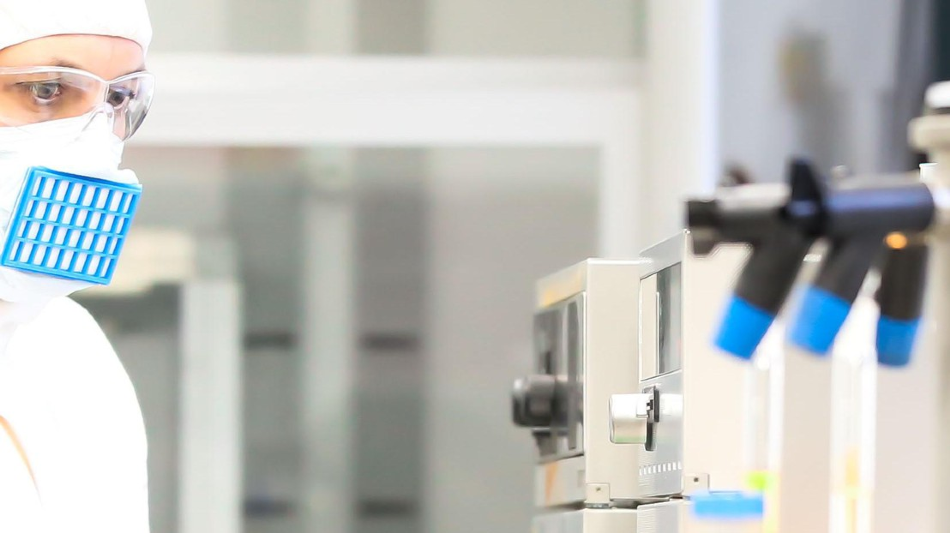Aug 10 2020
Paper masks are being made highly compulsory as part of the measures to mitigate the Covid-19 pandemic. Although there is no doubt about their relative effectiveness, their extensive use has several disadvantages.
 A prototype of a personal protection mask with a titanate filter, which shows efficient to kill bacteria and viruses. Image Credit: Courtesy of Swoxid SA / Endre Horváth.
A prototype of a personal protection mask with a titanate filter, which shows efficient to kill bacteria and viruses. Image Credit: Courtesy of Swoxid SA / Endre Horváth.
The drawbacks include the environmental effect of disposable masks produced from layers of non-woven polypropylene plastic microfibers. Also, these masks only trap pathogens rather than killing them.
In a hospital setting, these masks are placed in special bins and handled appropriately. However, their use in the wider world–where they are tossed into open waste bins and even left on the street–can turn them into new sources of contamination.
László Forró, Head, Laboratory of Physics of Complex Matter, EPFL
At Forró’s lab, scientists are working on a potential solution to this issue—a membrane made of titanium oxide nanowires and appears similar to filter paper but with antiviral and antibacterial properties.
Their material functions by leveraging the photocatalytic properties of titanium dioxide. Upon exposure to ultraviolet radiation, the fibers transform resident moisture into oxidizing agents such as hydrogen peroxide, which have the potential to destroy pathogens.
Since our filter is exceptionally good at absorbing moisture, it can trap droplets that carry viruses and bacteria. This creates a favorable environment for the oxidation process, which is triggered by light.
László Forró, Head, Laboratory of Physics of Complex Matter, EPFL
The study was published recently in the Advanced Functional Materials journal and reports experiments that show the potential of the membrane to kill Escherichia coli—the reference bacterium used in biomedical research—and DNA strands in a few seconds.
Commenting on the study findings, the team claims—though it is yet to be confirmed experimentally—that the process would prove successful on an extensive range of viruses, such as SARS-CoV-2.
Also, the paper reports that it would be possible to manufacture these membranes on a large scale—the equipment at the laboratory itself can make up to 200 m2 of filter paper every week, or sufficient for up to 80,000 masks per month. Moreover, it would be possible to sterilize the masks and use them again a thousand times.
This would not just mitigate shortages but also significantly decrease the amount of waste produced by disposable surgical masks. Ultimately, the manufacturing process, in which the titanite nanowires are calcined, renders them stable and avoids the threat of inhalation of nanoparticles by the user.
Swoxid, a new start-up, is already preparing to take the technology from the laboratory to the market.
The membranes could also be used in air treatment applications such as ventilation and air conditioning systems as well as in personal protective equipment.
Endre Horváth, Study Lead Author and Co-Founder, Swoxid
This study was financially supported by Zeno Karl Schindler Foundation, MBR Global Water Award, Swiss-African Research cooperation, and EPFL Tech4Impact Playgrant.
Journal Reference
Horváth, E., et al. (2020) Photocatalytic Nanowires-Based Air Filter: Towards Reusable Protective Masks. Advanced Functional Materials. doi/10.1002/adfm.202004615